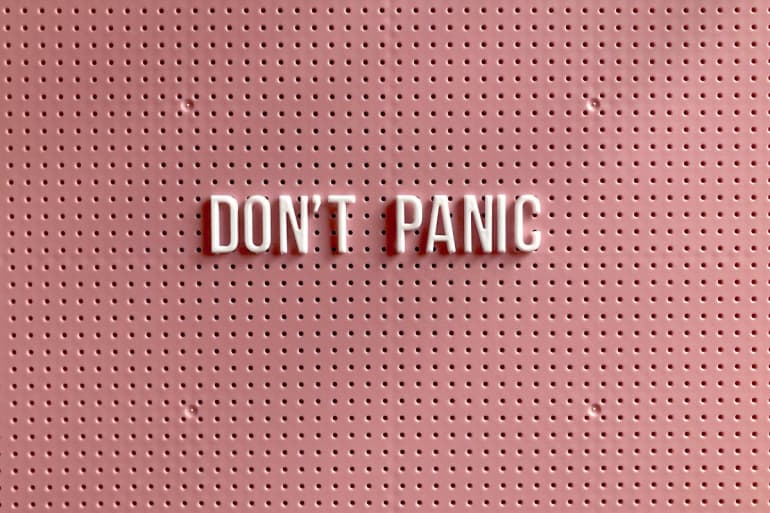Military veterans who have seen or experienced combat rarely leave the battlefield without being profoundly impacted by their experiences there. Even after being successfully discharged from active duty, many veterans still carry the weight of these traumatic events. Panic and flashbacks are familiar among military veterans, especially those who have navigated life-threatening situations. However, there are always daily strategies veterans can use to address and overcome the prevalence of panic and flashbacks after service for a healthy civilian life.
Panic and Flashbacks Among Veterans
Trauma, post-traumatic stress disorder (PTSD), and other mental health disorders are common among veterans following service, with anxiety, panic, flashbacks, and more all being shared experiences. According to the U.S. Department of Veterans Affairs, about 7% of veterans experience PTSD at some point in their lives. However, the chances of experiencing panic or flashbacks can be further increased depending on personal experiences in the military and the tours served. For example, those who were a part of Operations Iraqi Freedom and Enduring Freedom experience the highest risk, with around 29% experiencing symptoms of PTSD at some point in their lives.
Panic and flashbacks can be wholly debilitating, causing not just emotional turmoil but also may even influence the development of maladaptive behaviors. For some, an increase in risk-taking behaviors can be common, especially with the use of drugs or alcohol in an attempt to self-medicate panic and flashbacks in daily life. Others may find their personal or professional lives affected by the prevalence or intensity of these experiences, further affecting a veteran’s professional life and personal relationships.

Living with panic disorder is common among military, law enforcement, and others who put their lives on the line to protect us.
More infoSymptoms of Panic and Flashbacks
Panic and flashbacks are challenging to deal with, and can have lasting and profound effects. Some common symptoms of panic include:
- Elevated heart rate
- Irregular breathing patterns
- Altered perception of reality
- Shaking
- Nausea
- Sweating
- Weakness or loss of motor control
Panic is also accompanied by feelings of impending danger or a belief that there are immediate threats to a person’s well-being or life. Coupled with an altered sense of reality, panic can often feel not just all-encompassing but also illogical, making addressing symptoms of panic crucial.

Likewise, flashbacks are another common challenge that veterans face. Flashbacks are incredibly stressful moments where an individual feels transported back in time to the moment of a traumatic event or sees sudden images in their head, making it difficult to move on from these life-changing and life-threatening situations. These vivid memories can often feel like they are still happening in the present or be coupled with other symptoms, such as feeling physical sensations or auditory sensations accompanying such memories.
Daily Strategies for Navigating Panic and Flashbacks
Navigating panic and flashbacks is difficult for veterans, but always possible. Adopting daily strategies and working with the professionals at Hawaii Island Recovery to address these difficult feelings can help empower veterans to cope with them when they do manifest, or help prevent such experiences in the first place through education and preparedness.

Keep a Healthy Diet
Proper dieting has a massive impact on veterans’ mental health. Eating not only healthy meals but also eating at consistent mealtimes can ensure the body and mind have the nutrients to process stress in the best way possible.
Likewise, avoiding unnecessary unhealthy substances, like alcohol or caffeine, can also help to reduce stress or unnecessary barriers to a healthy lifestyle and promote a better emotional state.
Practice Grounding Strategies
Grounding strategies are different techniques that veterans can use to place themselves in the present moment and reconnect with reality, rather than feel trapped in another time or altered sense of perception. This can be things like naming objects in the vicinity, feeling objects around an individual, or focusing on a point in the room to reconnect with reality in the present and break through flashbacks or panic attacks. Practicing these strategies regularly can ensure their efficacy and normalize coping practices for later use during more tumultuous times.

Panic attack symptoms are terrifying and overwhelming, especially when you don’t expect them. Learn more about panic attacks and how to look for the signs.
More infoAnalyze the Environment
Ensuring that environments both feel safe and are devoid of unnecessary stresses or triggers is paramount. For some, this can be removing pictures that may be direct reminders of past traumas. However, it can also be smaller things like changing out a clock if the ticking is making a veteran feel uneasy during panic attacks or flashbacks or keeping areas clean and free of clutter that may negatively impact a person’s emotional health or perspective during such times.
Professional Education and Support
Dedicated veteran support groups are also paramount. Professional treatment programs like those available at Hawaii Island Recovery to address panic and flashbacks can help provide necessary education about the situation and can help veterans identify signs of their onset in themselves, such as increased heart rate, changes in thought patterns, and more, and can help veterans address the situation before they manifest.

Likewise, connecting with other veterans in a professional support setting at our Hawaii recovery center can create an atmosphere of support and provide new daily strategies, care, and acceptance to develop a personalized treatment plan to overcome the effects of panic and flashbacks in daily life.
Coping with panic and flashbacks as a veteran is extremely difficult. However, we at Hawaii Island Recovery are always available to help you process these challenges and any other stresses that you may be experiencing throughout veteran life. Our dedicated veteran healing programs and Hawaii recovery center are designed to help you process the challenges of military life for yourself throughout your transition to civilian life. From personalized programs to help process panic and flashbacks to overcoming trauma, addiction, and more alongside veteran peers, we can create a program that addresses your unique needs and goals for a healthier civilian life. For more information on how we can help you, call to speak to us today at (866) 390-5070.
 Hawaii Island Recovery
Hawaii Island Recovery 










